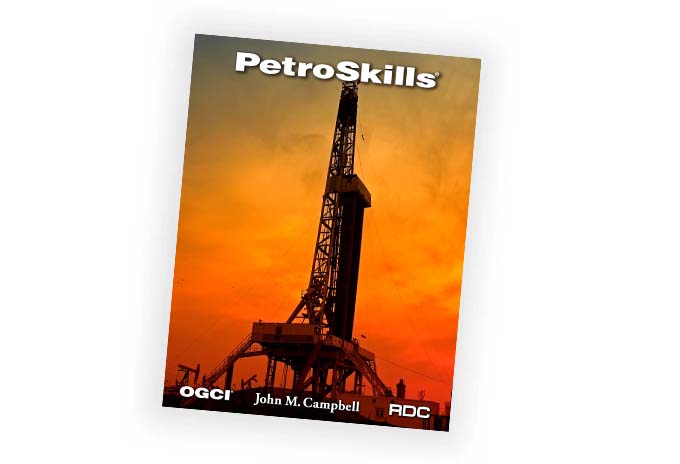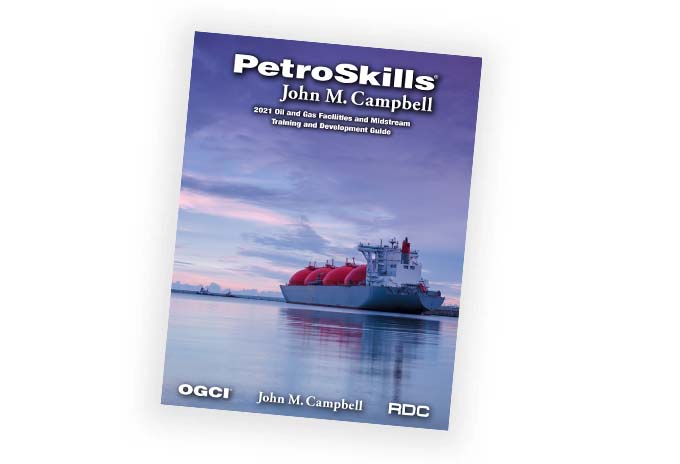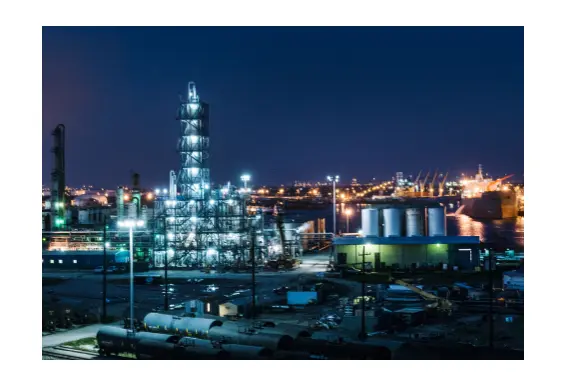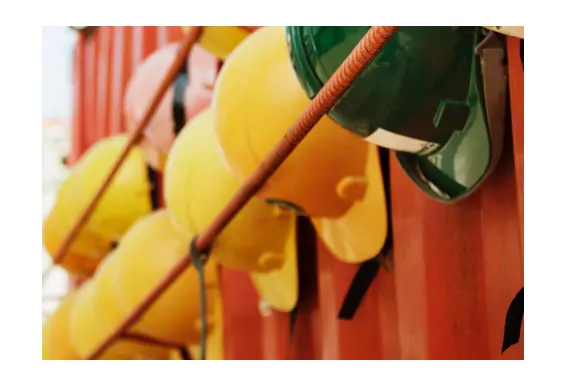Fluid Hydraulic Fundamentals for Facilities Engineers - eLearning series
About the Course
This short course is from the industry-standard Gas Conditioning and Process course (G-4), known globally as the Campbell Gas Course.
The course includes:
- 2.5 hours prerequisite eLearning modules (participants may test out)
- 5.5 hours required eLearning modules
- 30 min. optional eLearning modules
- 6 hours virtual, instructor-led sessions (pre-recorded)
Click here to see the full G-4 Short Course listing
Gathering systems, offshore pipelines, facilities piping and gas transmission lines are likely the most common and critical component in natural gas production and processing. Without the piping, the produced natural gas and liquids could not flow to our through the gas production and processing facilities. Understanding fluid hydraulics is important to be able to estimate the inlet pressure to a facility from a gathering system or offshore platform. In addition, understanding fluid hydraulics and being able to produce facility piping system curves is required to select and troubleshoot rotating equipment (both pumps and compressors).
Multiphase flow in offshore subsea pipelines and gathering systems can present significant operating problems in both offshore and onshore facilities due to operating in the slugging flow regime. This short course covers fluid flow fundamentals, and has a focus on multiphase flow systems.
The self-paced online modules cover (which can be tested out of):
- Estimation and application of friction factors
- Sizing piping systems
- Pressure drop in plant piping systems
- Flow regimes in multiphase flow systems
- Difference between liquid hold up and liquid volume fraction
- Common slugging mechanisms
- Erosional velocity
The virtual instructor lead lecture will cover simple correlations that will give significant insight into the phenomenon of multiphase flow systems, and what the key operating parameters are that determine the flow regime for a given system or pipeline.
The assigned problem will highlight the governing factors that result in total pressure drop in multiphase systems, and the significant reduction in gathering system capacity even with a small amount of liquids present.
The virtual instructor-led problem debrief will session will further develop other important considerations in multiphase flow systems, discuss potential slug mitigation methods, and the round table discussion will allow delegates to share their experiences, challenges and solutions to problems involving multiphase flow systems.
Prerequisites, which participants can test out of, cover Basic Conversions, Gas and Liquid Physical Properties, Multicomponent Phase Behavior, the Effect of C6+ Characterization on Phase Behavior, and Fundamental Applications of Phase Envelopes.
Target Audience
Production and processing personnel involved with natural gas and associated liquids, to acquaint or reacquaint themselves with gas conditioning and processing unit operations.
This course is for facilities engineers, process engineers, senior operations personnel, field supervisors, and engineers who select, design, install, evaluate, or operate gas processing plants and related facilities.
These short courses are ideal for mid-career professionals that have experience in the industry and have been transferred to a new role or assignment.
They are also ideal for new engineers that need to get up to speed quickly on the primary principles of gas processing with a deep dive on the issues of the short course topics.
You Will Learn
- The different flow regimes in multiphase flow systems
- The key parameters and factors that determine a flow regime in a multiphase flow system
- Methods to estimate the line size for high gas-oil ratio fluid flow systems
- Methods to estimate heat loss in piping system
- Facilities piping fluid hydraulic calculation methods for both liquid and vapor
- Rules of thumb on economic pipe diameter for different process applications (both facilities and pipeline applications)
- Common gas transmission system flow correlations
Course Content
e-Learning content:
- Estimation and Application of Friction Factors
- Sizing Piping Systems
- Pressure Drop in Plant Piping Systems
- Flow Regimes in Multiphase Flow Systems
- Difference Between Liquid Holdup and Liquid Volume Fraction
- Common Slugging Mechanisms
- Erosional Velocity
Instructor-led sessions:
- Fundamentals of Fluid Flow Lecture
- Self-Directed Problem Assignment
- Problem Debrief and Experience Round Table
- Recognize the variables that affect multiphase flow in a pipeline
- Estimate line sizing for high gas-oil ratio systems using the Modified Flanigan Equation
- Recognize the effect of small amounts of liquid on gathering system performance
Product Details
Categories:
MidstreamDisciplines:
Gas ProcessingLevels:
FoundationProduct Type:
CourseFormats Available:
On-DemandAdditional
Request a Public Session
If you are interested in a public session of this course, please click the button below to request it.
Request Public SessionIn-House Training
This course is also available upon request as a private, on-site seminar. Contact us for details and pricing.
Request In-House TrainingNeed Help
Contact us if you have additional questions about how to register for or attend this course.
Contact Us



